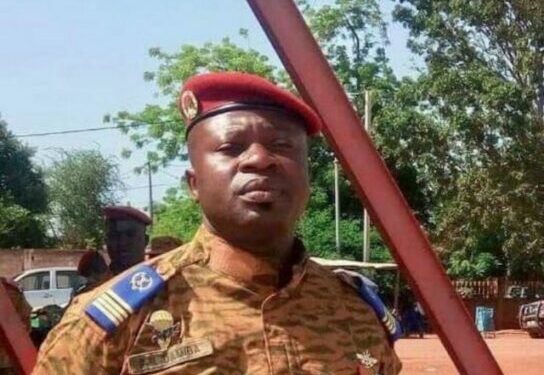On Monday, January 24th, 2022, the world drifted to a new reality in Burkina Faso, a nation in West African.
The armed forces arrested and detained President Roch Marc Christian Kabore, along with his aidees and ministers.
Later on in the day, the army announced a power grab, proclaiming it was in control of all leadership stractures. All ministers were suspended and the consititution dissolved. Behind this coup d’etat was a young Lieutenant colonel, Paul-Henri Sandaogo Damiba.
In a statement read by the spokesperson Ouedraogo, Damiba was declared president of Patriotic Movement for Preservation and Restoration (MPSR), which is the official name of the junta.
He is the country’s brand new strongman, and has first-hand experience of the mastering of the battlefield, majorly in the fight against insurgency.
Soon after seizing power, he cited government’s failure to effectively train and equip the army in its battles against ISIL linked armed groups, as justification for the power grab.
Damiba 41, now heads the military junta that is yet to announce the whereabouts of the overthrown president, who faced public frastration and anger due to his failure to avert the political turmoil in the country.
He trained at the Georges Namoano Military Academy in Po in southern Burkina Faso, and commands the 3rd Military Region, which covers eastern Burkina Faso — one of the hard-hit areas, according to AFP news.
Most of its alumni served in the Presidential Security Regiment (RSP), the former presidential guard of Kabore’s predecessor, Blaise Compaore, who was overthrown by a popular uprising in 2014.
He commanded the RSP from 2003-2011. As regiment commander from 2019 to 2021, he gained first-hand experience of the problems of Burkina Faso’s poorly-trained and ill-equipped security forces against ruthless and highly mobile jihadists.
In November last year, president Kabore shook military ranks and Damiba was sent to command the 3rd military region, after 53 gendames were slaughtered at their base, when it was captured by assailants.
Like many military officers in the French-speaking Sahel, Damiba has had close affiliations with France. He trained at the prestigious Military School of Paris.
The Paris company Editions Les Trois Colonnes which published his book last year, says Damiba also earned a “master’s degree in criminal science” at the CNAM academy in the French capital, and has also gained a diploma in “defence management, command and strategy”, reports AFP news agency.
“He’s an example of a good soldier, a tough commander who has been on the front line with his men,” said a military source, who praised Damiba’s “commitment.”
“He is part of the elite, although he has also got results on the ground — he has led and commanded a certain number of units,” said Oumarou Paul Koalaga, a local political analyst.
It is estimated that since the first jihadist attacks in 2015, more than 2000 people have died, with the army and police suffering severe losses, in terms of men and equipment. It is also estimated that some 1.5 million people have been internally displaced.
Do you have a story in your community or an opinion to share with us: Email us at editorial@watchdoguganda.com













